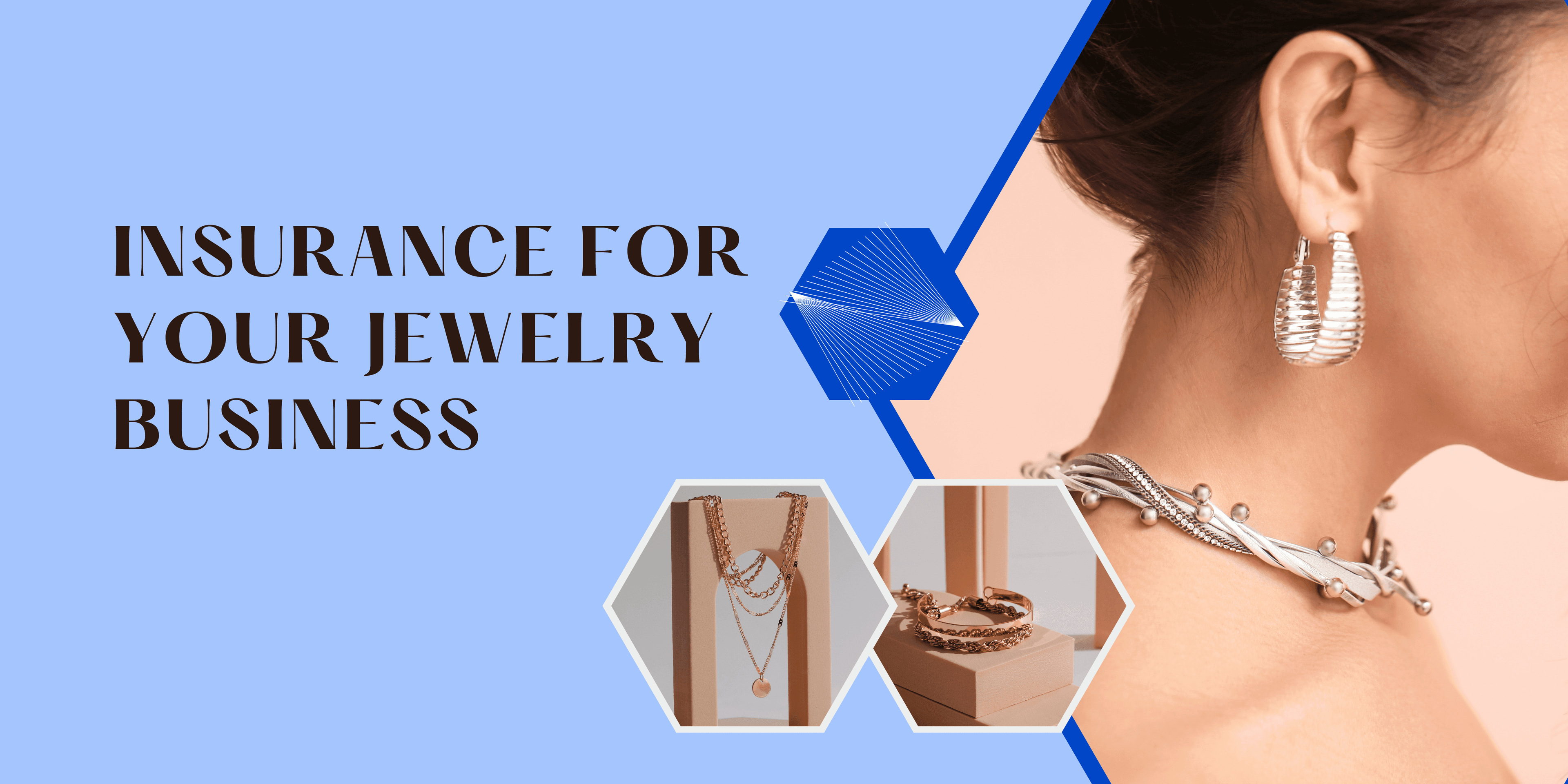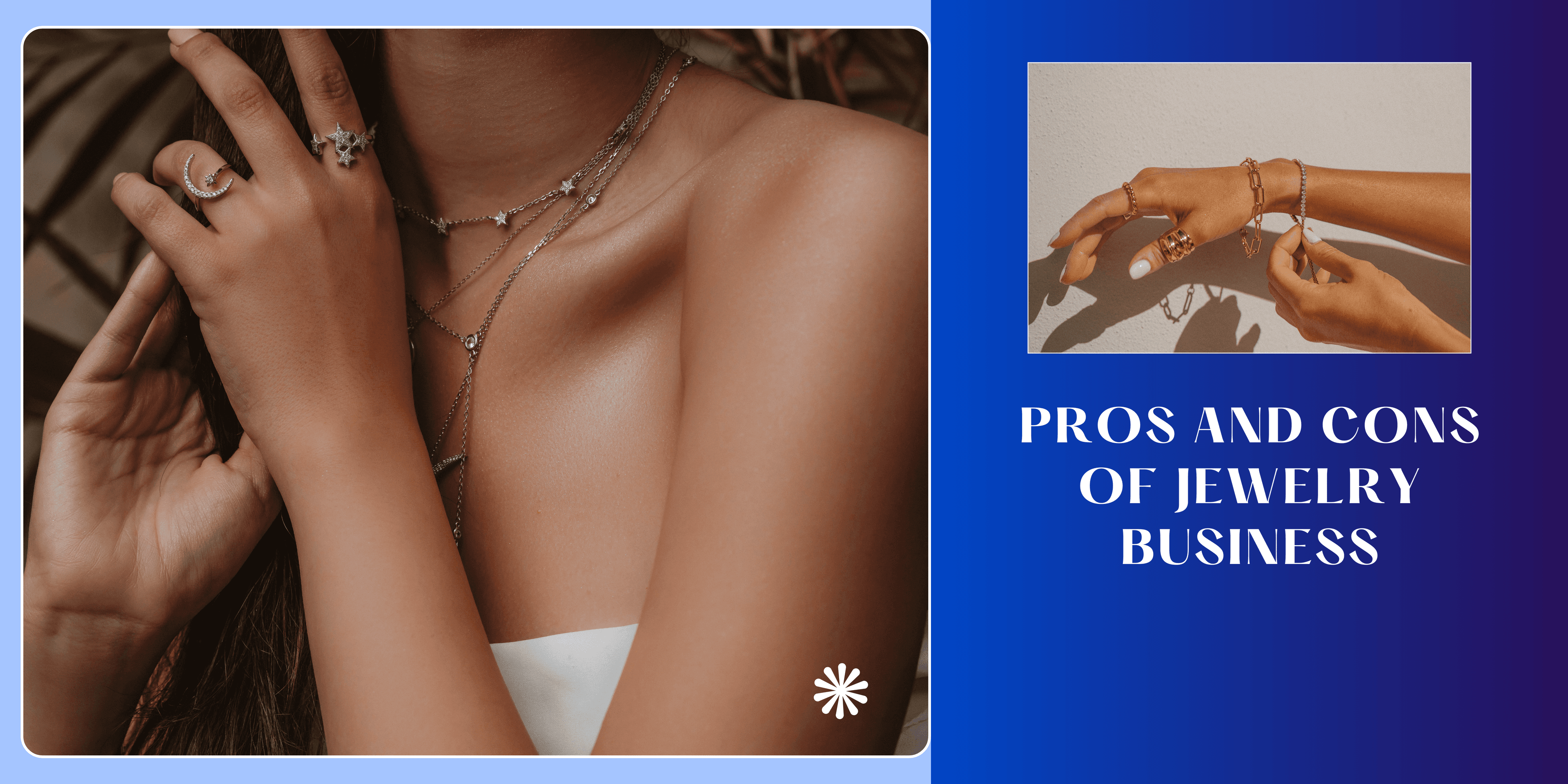
As a jewelry business owner, it is your responsibility to ensure the wellbeing of your operation for your customers, employees and yourself.
The longer you spend in the industry the more you see and the more you realize that anything is possible. As such, you start appreciating the importance of insurance and its ability to protect your jewelry business from unpredictable events. This guide will underline why insurance for jewelry businesses is essential, and what types of insurance coverage you need.
Why Do Jewelry Stores Need Insurance?
Jewelry businesses face a unique set of risks that make having proper insurance coverage critical. From the moment you open your doors to the public, you are exposing your valuable inventory and assets to many potential threats. Unlike other retail businesses, jewelry stores house inventory that is often expensive, and sometimes irreplaceable.
A jewelry store display case can contain hundreds of thousands of dollars’ worth of precious metals and gemstones, making these businesses prime targets for theft. In addition, natural disasters, accidents, and even simple plumbing issues can cause catastrophic damage to both your store and your inventory.
Moreover, in an industry built on trust and prestige, safety concerns of any kind can be financially and reputationally devastating. Real-life incidents underscore the importance of comprehensive jewelry insurance coverage. As a business owner, you need to consider all risks that could impact your business and prepare for the worst while hoping for the best.
What Types of Business Insurance Do Jewelry Stores Need?
To fully protect your jewelry business, you'll need a combination of insurance types tailored to the unique risks of the jewelry industry.
• General Liability Insurance serves as your first line of defense against claims of bodily injury or property damage. If a customer slips and falls in your store or you accidentally damage a client's property, this coverage is here to protect you.
• Property Insurance is essential for protecting your stores, inventory, and equipment. This coverage ensures that if disaster strikes (such as fire, theft, or natural disasters) you can recover and rebuild.
• Complementing this is Inland Marine Insurance, which, despite its odd name, is crucial for jewelry businesses as it covers your inventory while transiting places or when at locations other than your primary business address.
• For businesses with employees, Workers' Compensation Insurance is legally required. It protects your staff in case of work-related injuries or illnesses, covering medical expenses and lost wages.
• Business Interruption Insurance can be a lifeline if your business faces temporary closure due to covered events, helping replace lost income and cover ongoing expenses like rent and payroll during downtime. A recent example of a need for such insurance is the COVID-19 crisis, which forced many businesses to shut down for long periods of time. This insurance helped them mitigate their loss by covering expenses and replacing income.
A specialized policy for the jewelry industry, Jewelers Block Insurance, typically combines several types of coverage tailored specifically to jewelry businesses, including protection against theft, damage during transit, and mysterious disappearance of inventory. Modern jewelry inventory management systems like CaratIQ help you track the value of your items over time and store receipts and invoices, which can be invaluable when you have to prove the value of your inventory in case of a claim. Additionally, CaratIQ can generate automated appraisals for your customer’s jewelry. This can help ensure that both your business and your clients' pieces are adequately protected.
How Much Does Insurance Cost for Jewelry Retail Businesses?
The cost of insurance for jewelry businesses can vary greatly based on several factors. Location plays a significant role: a store in a high-crime area or a region prone to natural disasters may face higher premiums.
The size of your business and the value of your inventory also heavily influence costs, with larger operations and higher-value stock typically requiring more extensive coverage. Your security measures can impact your premiums as well. If you implement a comprehensive security system, you will lower your insurance costs.
Another factor is your claims history: a record of frequent claims may result in higher rates. While it is challenging to provide exact figures without knowing the specifics of a business, general liability insurance for jewelry stores might range from $500 to $3,000 per year, while property insurance could cost between $1,000 and $5,000 annually. Specialized coverage like Jewelers Block Insurance can range from $2,500 to $15,000 or more, all depending on inventory value.
These figures are rough estimates, and your actual costs can vary significantly. Make sure to obtain quotes from multiple providers to get a clear idea of what your potential insurance costs will be. Remember, while the cost of insurance may seem high, it pales in comparison to the potential losses you could face without adequate coverage.
How Do I Get Jewelry Store Insurance?
Securing the right insurance for your jewelry business involves several key steps.
Start by assessing your needs: take a comprehensive count of your inventory (or future assets if launching your business), including your stock, equipment, and property. Consider your business operations and any unique risk you might face.
Next, research insurance providers that specialize in jewelry business coverage. These companies will have a better understanding of the specific needs related to your industry and can offer tailored solutions. Prepare detailed records of your inventory, including appraisals, purchase receipts, and any certificates for precious stones. This is where a system like CaratIQ can be invaluable, providing easy access to all this information centralized in one place.
Reach out to several insurance providers or get a broker who can shop around for you. This will help you compare coverage options and prices. When reviewing policies, pay close attention to coverage limits, deductibles, and any exclusions. Many insurers offer business owner's policies (BOPs) that combine several types of coverage at a more affordable rate than purchasing each separately.
When seeking coverage, be prepared to provide detailed information about your security measures, such as what alarm systems use, the types of safes you have, and your inventory tracking procedures. Again, demonstrating that you use a high-quality inventory management system like CaratIQ can potentially lead to more favorable terms, as it shows your commitment to accurate record-keeping and valuation.
As your business grows, your insurance coverage needs to evolve as well. Plan to review your policies annually to ensure they still meet your current needs.
In conclusion, while the process of obtaining insurance for your jewelry business may seem intimidating, it is an essential step in protecting your assets and ensuring the longevity of your business.
Read Also:
Tax Deductions for Jewelry Businesses
How to Successfully Buy Jewelry at Wholesale Prices and Sell it at Retail Prices

You may also like
View all

